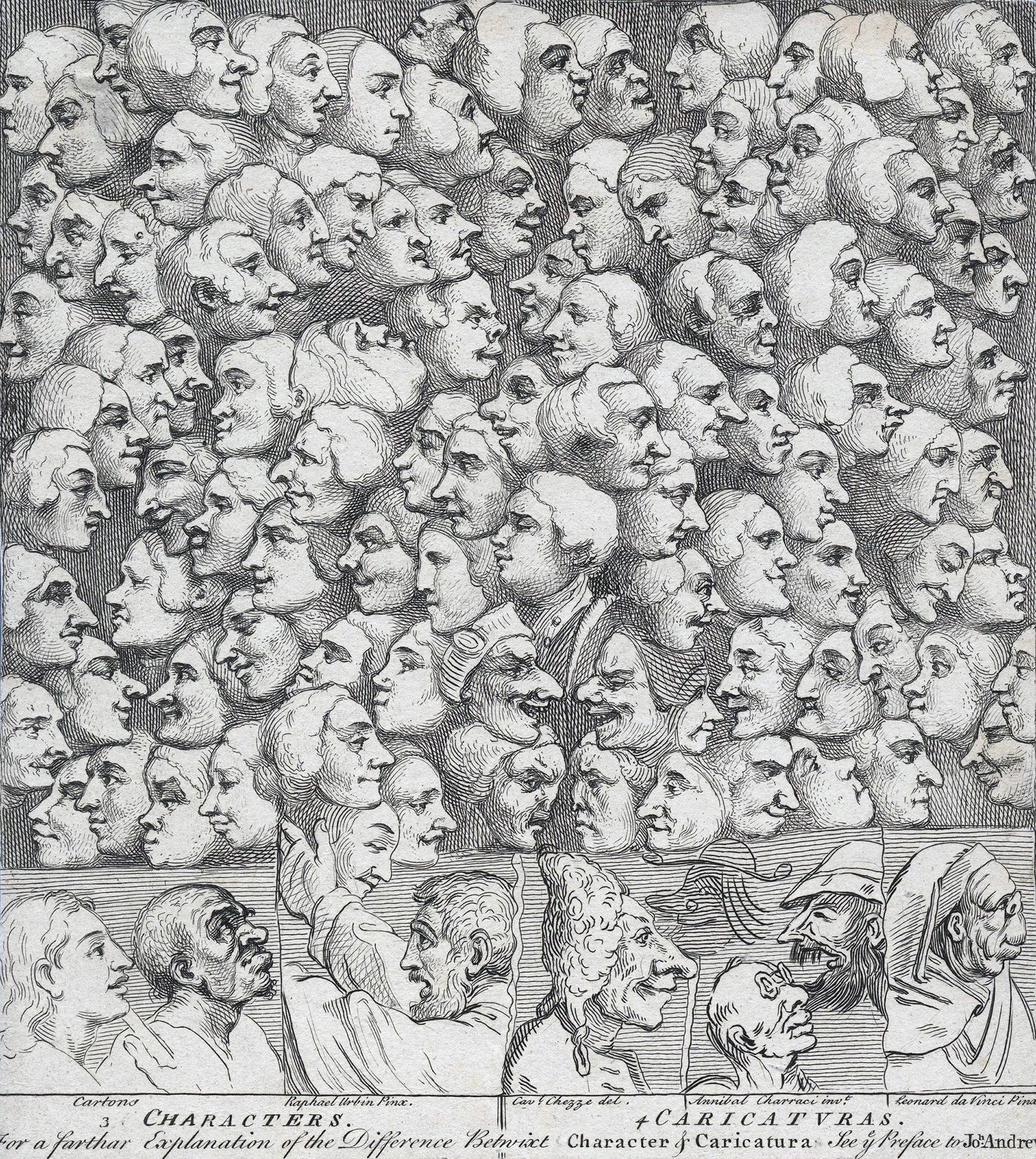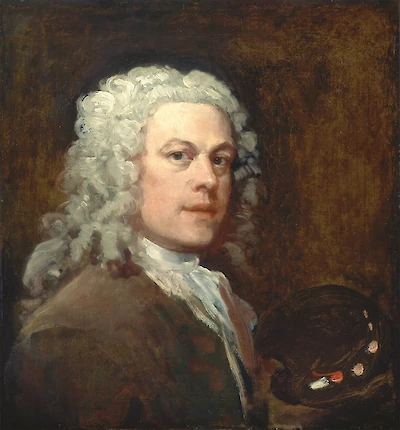William Hogarth
A printmaker analyzes taste — and beauty comes out on top




Satire is a difficult game to play, and William Hogarth played it well. An engraver by trade, Hogarth grew up in London, walking the markets and documenting street life and the city’s diverse mob of humanity in sketches and prints.
Popular events and social customs were Hogarth’s bread and butter. Much of his early work were illustrations of moral tales, like the series of six prints The Harlot’s Progress, the story of a farm girl who falls into prostitution and dies from syphilis. This blunt story proved tremendously successful, and Hogarth followed it with A Rake’s Progress, about a wastrel who gambles and whores himself into the grave. These cautionary tales were so successful that Hogarth had to lobby for copyright control when other print sellers began reproducing his work, eventually establishing the Engraver’s Copyright Act on June 25th, 1735.
This early exposure unlocked Hogarth’s snarky side, and his work gained a sharp satirical edge. His next series, six paintings titled Marriage à-la-mode, exposed the misery of contractual marriage, and ripped into the lavish lifestyles of the upper class. Moralizing took a turn for the humorous, and while Hogarth continued to make print series condemning alcoholism and cruelty to animals, he leaned into the dark humor of fate’s vengeance on the wicked, lazy and mean.
But as any comedian knows, not everyone wants to laugh along. Hogarth’s preaching touched a nerve, and critics claimed he depicted all women as harlots and all men as caricatures. In 1753 Hogarth decided to get serious. To prove his standing as a true artist (and snub his critics), Hogarth published The Analysis of Beauty, a book containing six principles by which beauty itself is defined and created. It’s a startlingly powerful work to this day, establishing fitness, variety, regularity, simplicity, intricacy, and quantity as the foundational vocabulary of aesthetic form. Meticulously illustrated with examples of line quality, shape, texture, and composition—it was a dominant statement of insight from a truly skilled craftsman. The satirist had become a teacher.
...
Got questions, comments or corrections about William Hogarth? Join the conversation in our Discord, and if you enjoy content like this, consider becoming a member for exclusive essays, downloadables, and discounts in the Obelisk Store.